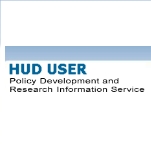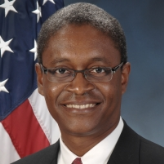The Office of Policy Development and Research was established in 1973, in accordance with the statutory citation in Title V of the 1970 Housing and Urban Development Act, which authorized programs of “research, studies, testing, and demonstrations” to benefit HUD in achieving its mission of increasing home ownership and access to affordable housing free from discrimination. In the 1990s PD&R was also given responsibility for assisting in regulation of the government-sponsored enterprises that comprise the secondary mortgage market, Fannie Mae and Freddie Mac, and in promoting university/community partnerships through technical assistance and grants.
- Table of Contents
- Overview
- History
- What it Does
- Where Does the Money Go
- Controversies
- Suggested Reforms
- Comments
- Leave a comment


The Office of Policy Development and Research (PD&R), which serves as a research, survey, and analysis support system for the Department of Housing and Urban Development (HUD), will soon have a new director hailing from academia. Dr. Katherine O’Regan, who is associate professor of Public Policy and director of the Public and Nonprofit Management and Analysis Program at the Wagner Graduate School of Public Service at New York University, was nominated by President Obama on June 27. PD&R is meant to facilitate the formation of partnerships between universities and communities so they can jointly address urban problems.
Born circa 1961, Katherine M. O’Regan earned a B.S. at the Wharton School of Finance of the University of Pennsylvania in 1983 and a PhD in Economics at the University of California-Berkeley in 1990. Her doctoral dissertation was entitled “Social networks and low-wage labor markets.” During the brief gap in her studies, O’Regan served as an analyst at the Office of Hearings and Appeals in the Department of Energy from July 1983 to July 1985.
After earning her doctorate, O’Regan was a professor of Economics and Public Policy at the Yale School of Management from July 1990 to July 2000, including seven months as a guest scholar at the Economic Studies Program at the Brookings Institution from January to July 1994, and eight months as a visiting scholar at the Federal Reserve Bank of Boston from January 1997 to August 1998.
.
O’Regan is associate professor of Public Policy at the Wagner Graduate School, where she has taught since July 2000. Since November 2002, she has also been director of Wagner’s Public and Nonprofit Master’s Program. In addition, she served as associate dean for Faculty and Academic Affairs from November 2002 to June 2004 and as co-director of the Taub Center for Urban Policy Research from 2005 to 2007. At present, O’Regan teaches courses in microeconomics, poverty, program evaluation, and urban economics.
O’Regan’s primary research interests are to study the intersection of poverty and space—the conditions and fortunes of poor neighborhoods and those who live in them. Among others, she serves on the board of The Reinvestment Fund, the American Real Estate and Urban Economics Association, the advisory board for NYU’s McSilver Institute for Poverty Policy and Research, and the editorial board for the Journal of Policy Analysis and Management.
-Matt Bewig
To Learn More:
Biography (NYU Wagner)
Accessibility and Economic Opportunity (by Katherine M. O’Regan and John M. Quigley, SSRN)
Crime and U.S. Cities: Recent Patterns and Implications (by Ingrid Gould Ellen and Katherine O’Regan) (pdf)
Curriculum Vitae (pdf)

Considered a leading real estate economist, Raphael Bostic was sworn in as Assistant Secretary for Policy Development and Research on July 16, 2009. He spent most of the previous decade teaching and researching at the University of Southern California, during which time he incorrectly refuted the notion that a “housing bubble” existed in the U.S. real estate market.
- Latest News
- D.C. Public Schools will Teach all Second-Graders to Ride a Bike
- New Rule in Germany Limits Sales of Sex-Themed E-Books to 10pm to 6am
- What Happened to the 6-Year-Old Tibetan Boy the Chinese Government Kidnapped 20 Years Ago?
- U.S. Ambassador to Turkey Photoshops his Hair Color to Mock Turkish Mayor
- Mystery Artist Calls Attention to Unfixed Potholes by Drawing Penises around Them
The Office of Policy Development and Research was established in 1973, in accordance with the statutory citation in Title V of the 1970 Housing and Urban Development Act, which authorized programs of “research, studies, testing, and demonstrations” to benefit HUD in achieving its mission of increasing home ownership and access to affordable housing free from discrimination. In the 1990s PD&R was also given responsibility for assisting in regulation of the government-sponsored enterprises that comprise the secondary mortgage market, Fannie Mae and Freddie Mac, and in promoting university/community partnerships through technical assistance and grants.
Comments


The Office of Policy Development and Research (PD&R), which serves as a research, survey, and analysis support system for the Department of Housing and Urban Development (HUD), will soon have a new director hailing from academia. Dr. Katherine O’Regan, who is associate professor of Public Policy and director of the Public and Nonprofit Management and Analysis Program at the Wagner Graduate School of Public Service at New York University, was nominated by President Obama on June 27. PD&R is meant to facilitate the formation of partnerships between universities and communities so they can jointly address urban problems.
Born circa 1961, Katherine M. O’Regan earned a B.S. at the Wharton School of Finance of the University of Pennsylvania in 1983 and a PhD in Economics at the University of California-Berkeley in 1990. Her doctoral dissertation was entitled “Social networks and low-wage labor markets.” During the brief gap in her studies, O’Regan served as an analyst at the Office of Hearings and Appeals in the Department of Energy from July 1983 to July 1985.
After earning her doctorate, O’Regan was a professor of Economics and Public Policy at the Yale School of Management from July 1990 to July 2000, including seven months as a guest scholar at the Economic Studies Program at the Brookings Institution from January to July 1994, and eight months as a visiting scholar at the Federal Reserve Bank of Boston from January 1997 to August 1998.
.
O’Regan is associate professor of Public Policy at the Wagner Graduate School, where she has taught since July 2000. Since November 2002, she has also been director of Wagner’s Public and Nonprofit Master’s Program. In addition, she served as associate dean for Faculty and Academic Affairs from November 2002 to June 2004 and as co-director of the Taub Center for Urban Policy Research from 2005 to 2007. At present, O’Regan teaches courses in microeconomics, poverty, program evaluation, and urban economics.
O’Regan’s primary research interests are to study the intersection of poverty and space—the conditions and fortunes of poor neighborhoods and those who live in them. Among others, she serves on the board of The Reinvestment Fund, the American Real Estate and Urban Economics Association, the advisory board for NYU’s McSilver Institute for Poverty Policy and Research, and the editorial board for the Journal of Policy Analysis and Management.
-Matt Bewig
To Learn More:
Biography (NYU Wagner)
Accessibility and Economic Opportunity (by Katherine M. O’Regan and John M. Quigley, SSRN)
Crime and U.S. Cities: Recent Patterns and Implications (by Ingrid Gould Ellen and Katherine O’Regan) (pdf)
Curriculum Vitae (pdf)

Considered a leading real estate economist, Raphael Bostic was sworn in as Assistant Secretary for Policy Development and Research on July 16, 2009. He spent most of the previous decade teaching and researching at the University of Southern California, during which time he incorrectly refuted the notion that a “housing bubble” existed in the U.S. real estate market.
- Latest News
- D.C. Public Schools will Teach all Second-Graders to Ride a Bike
- New Rule in Germany Limits Sales of Sex-Themed E-Books to 10pm to 6am
- What Happened to the 6-Year-Old Tibetan Boy the Chinese Government Kidnapped 20 Years Ago?
- U.S. Ambassador to Turkey Photoshops his Hair Color to Mock Turkish Mayor
- Mystery Artist Calls Attention to Unfixed Potholes by Drawing Penises around Them





Comments